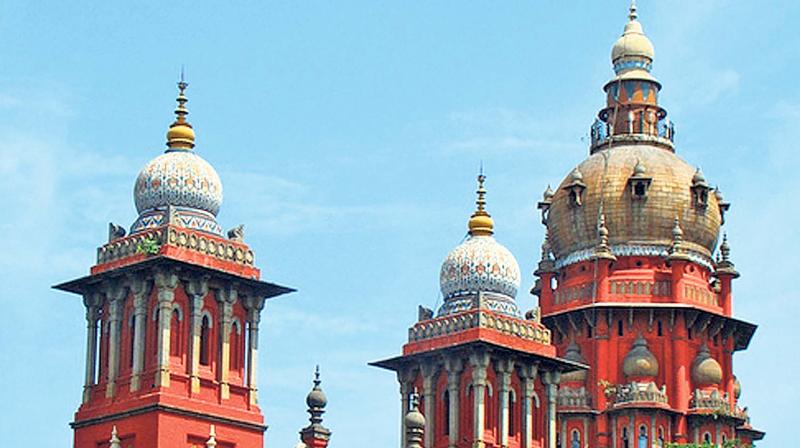DMK challenges 10 per cent reservation to economically weaker
Organising secretary Bharathi files petition in HC.

Chennai: The DMK on Friday petitioned the Madras High Court seeking to nullify the Constitutional amendment cleared only some days ago by the Parliament providing 10 per cent reservation to the 'economically weaker' upper castes,
The DMK's organising secretary and Rajya Sabha Member RS Bharathi in his petition argued that 'social justice' was the rationale behind the reservation policy introduced in 1951 and so bringing in the new element of 'income' to justify reservation would violate the Constitution's basic structure itself.
"The concept of reservation, being an exception to the equality clause, is only justified when it is used for the purpose of upliftment of communities which have suffered discrimination and oppression like the OBC, SCs and STs. Economic criteria alone cannot be the basis of reservation since reservation is not a poverty alleviation scheme", Bharathi argued, while recalling some Supreme Court orders which held that economic status cannot be the sole criterion for reservation.
The DMK petitioner stated that as far as Tamil Nadu is concerned, the state already has the policy of 69 per cent reservation for backward classes, Dalits and Adivasis-whereas it is 50 per cent rest of India-and the present amendment would take the reservation quota further up to a total of 79 per cent. This is liable to be struck down on the grounds of manifest arbitrariness and non-discrimination, both being facets of article 14, which is now well enshrined as an 'untouchabe' basic feature of the Constitution, he said.
Recalling the first Indian Parliament's discussion on whether the positive discrimination was in contravention of the principle of equality, he said, "During one such debate, a question was posed by Mr TT Krishnamachari as to whether the term backward class referred to in Article 16 (4) was based on economic status or caste. To this, the reply of Dr BR Ambedkar reflects the intention of the drafters. He said that 'as I said, the Drafting Committee had to produce a formula which would reconcile these three points of view, firstly, that there shall be equality of opportunity, secondly that there shall be reservations in favour of certain communities which have not so far had a 'proper look-in' so to say into the administration.' Hence, it is clear that the concept of reservation itself is not with reference to the economic status of a person but rather with reference to the community to which he belongs, with an idea to integrate that community into the mainstream system of education and employment."
The DMK petition argued that the "heinous nature of caste discrimination" in the country remained an "incomparable phenomenon" that denied basic human dignity to a vast population for many centuries. These people of 'lower castes' remained segregated from the academics and were denied employment at places where the upper castes worked. "The effect of this systemic discrimination was not just economic. It was social and psychological as well."
The petition also alleged that the Bill was rushed and 'foisted' on the Lok Sabha when it was not even part of the agenda. The Union of India in a Cabinet meeting on January 7 (2019) took the decision to provide 10 per cent reservation for the economically weaker section in the general category and the very next day, the Bill 2019 was introduced in the Lok Sabha. "Copes of the Bill were not even furnished to the MPs sufficiently in advance for them to have "a meaningful deliberation and consult with their constituents."
Alleging that the Bill in propounding the economic criterion had only aimed at excluding the 'creamy layer'-people in the BC list who are economically advanced-the DMK petition argued that since the impugned amendments do not define the term 'economically weaker sections', it would lead to different states adopting different standards.

